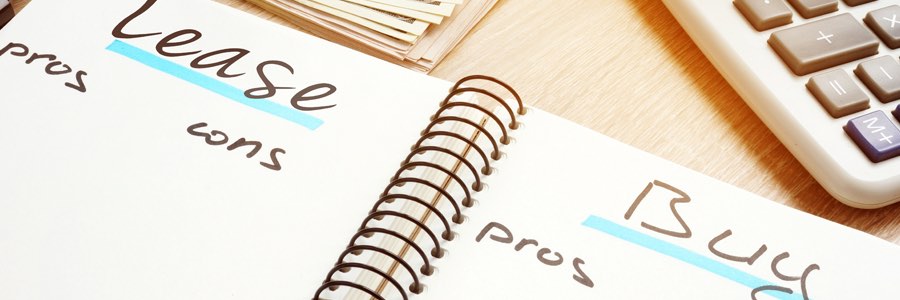AUTO LOAN OR LEASE?
From ATV to SUV, subcompact to stretch limo, coupe to convertible, the choices in vehicles have never been greater. Neither have your options in paying for those new wheels. Here are some pointers that can help drive your decision.

PAYING FOR YOUR NEW CAR
You chose the make and model, the features and color. Next decision: buy or lease? There’s really no right or wrong answer, it all comes down to preference and lifestyle. Both options will enable you to break down the cost of such an expense into manageable pieces. The most important point to remember is that no matter what path you choose, both roads will lead to your credit report review.

WHY TO LEASE
Let’s take a look at some advantages of leasing a vehicle. Leasing usually allows for less money out of your pocket in the form of lower monthly fees and a low down payment. A leased car is usually in your possession for approximately 3 years, so repair costs would be minimal. The factory warranty will cover most repairs, outside of routine oil changes and basic maintenance. And though you’ll still be required to pay sales tax, it’s only on the portion of the car you finance.

WHY NOT TO LEASE
And now the downside of leasing. Because leasing is a fancier way of saying “borrow,” you’ll never own the vehicle at the end of your lease term. You’ll also be limited to driving a certain amount of miles per year, usually 12,000 – 15,000, and if you go over this amount, you’ll have to pay for each extra mile. When your lease is over, the vehicle is subject to an inspection and if the wear and tear is extensive, you’ll have to pay more than you may have anticipated. If you decide in the middle of the lease that “this vehicle just isn’t for you,” you’ll be subject to pay an early termination fee.
Lastly, if you look at the lease commitment in the long run, you’ll discover that your monthly payments are probably based on MSRP (manufacturer’s suggested retail price) – which is the price that’s quoted to customers before they negotiate it down. So in essence, you are most likely making payments based on a higher purchase price than you would be if you bought the vehicle and were paying it off.

WHY TO BUY
The best part about buying a car via car loan, is at the end of your payment plan, you own the car and (aside from regular maintenance) you don’t have to make any more payments. In the long run, it’s actually more economical if you plan to hold on to the car for a long time.
In other words, you own the residual value of your car, so you can sell it or trade it in on another vehicle.

WHY NOT TO BUY
Even though you are getting a car loan, you’ll still need to put some money down upfront, generally in the form of a substantial down payment.
Depending on the terms of the loan, your monthly payments could be higher than if you leased.
Depreciation is not your friend: the value of your vehicle begins to plummet the moment you drive it off the lot, even though your loan is based on the agreed-upon showroom value.

LEASING LANGUAGE
Sometimes half the battle of understanding if you should buy or lease lies within the terminology. Get to know the following terms so you’ll have a better understanding when it comes to negotiating price and options with your car dealer.
- Depreciation: The amount by which a vehicle loses its value over time; the difference between the car’s original price and its residual value later.
- Residual Value: The balance remaining when you return the car after your lease term ends. You negotiate this value with the finance company when you sign the lease.
- Closed-End Lease: A lease that sets the vehicle’s residual value upfront and states it in the contract.
- Capitalization cost (cap cost): The total price of the car, which the company leasing the vehicle uses to calculate how much you’ll pay.
- Cap Cost Reduction: The upfront amount you pay on signing the lease, like a down payment on a car loan.
- Acquisition fee: The charge for processing a lease.
- Disposition fee: Paid at the end of the lease to prepare the returned vehicle for sale.
